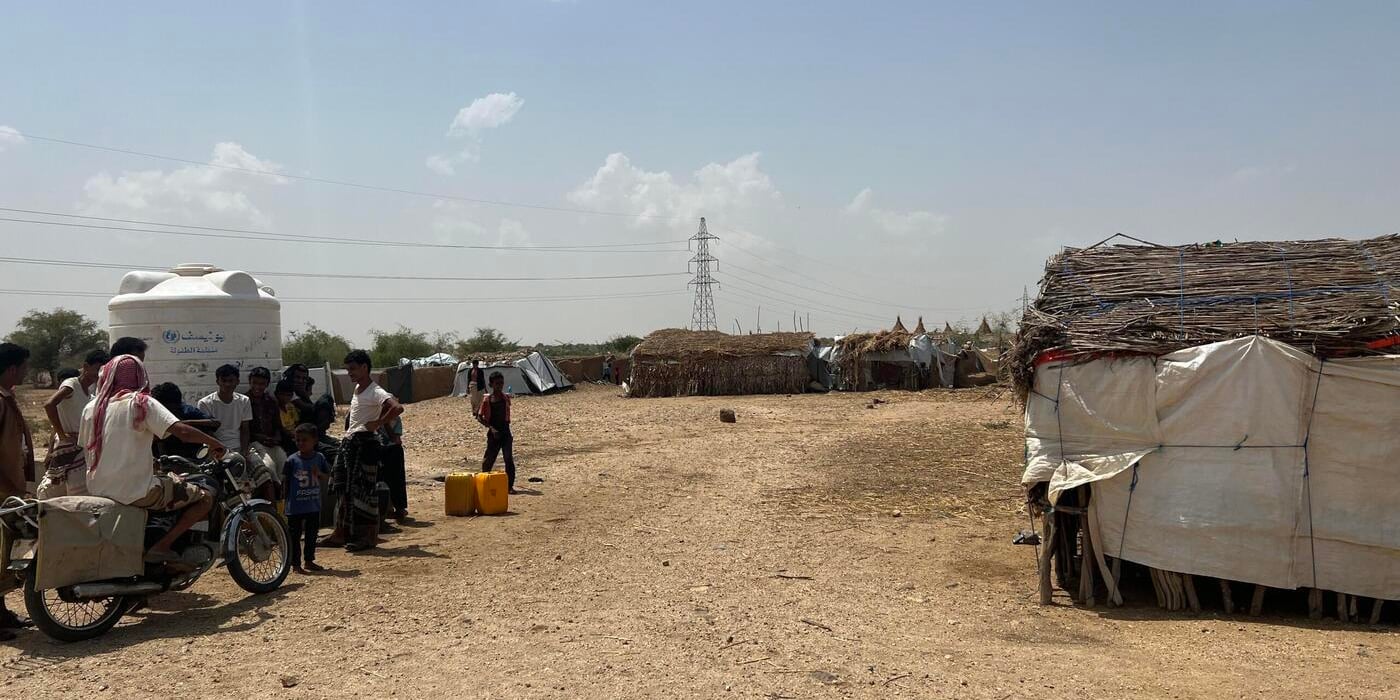
The longstanding conflict in Yemen worsened after the Arab spring in 2011, and in March 2015 Saudi Arabia launched a military intervention to shore up the country's government. Amidst the violence, people's livelihoods and the economy more broadly have been decimated, and more than 22 million people are in need of assistance.
Humanitarian access to those in need has been extremely difficult, but despite the destructions, markets have remained mostly functional, meaning that cash assistance can offer a way to reach more people.
"Cash grants allow families to spend money on what they need the most, be it food, clothes, rent or medicines", says CashCap expert Thomas Byrnes.
The use of cash transfer programming in Yemen was on the increase in 2016, but the humanitarian community did not have the expertise to scale it up. To support the sound and systematic use of cash assistance, we deployed two senior cash and markets experts in 2016 and 2017.
Finding the best way to help those in need
Providing people with money instead of in-kind assistance has many benefits, and global commitments have been made to use more cash in humanitarian responses. There is, however, a lack of knowledge in how to plan and implement cash-based assistance and coordination is generally poor. When Mamta Kanal Basnet, a senior CashCap expert, arrived in Yemen in late 2016, there were no harmonised approaches, risk analyses or proper assessments beyond the food security and agriculture sectors. The situation was potentially detrimental to both markets and the people receiving assistance.
“Many agencies, even beyond the food sector, were doing cash or market-based activities. However, there was no common forum to discuss and coordinate,” says Basnet. She established a cash and markets working group as a platform for all clusters, which now plays a key role in supporting the humanitarian response.
The working group realised that the UN and other organisations needed updated information on how to use cash to reach more people in the evolving conflict. Basnet and Byrnes led the process of raising funds, and planning and implementing a joint cash study with the REACH initiative’s support.
The study confirmed that the Yemeni market was suitable for cash programming. IDPs, returnees and host communities told the team that inflation, a cash-flow crisis and diminishing purchasing power were affecting both vendors and consumers nationwide. Food and basic goods were available in many parts of the country, but people were unable to afford them. People also said they preferred cash assistance to cover their needs because of the flexibility it provides.
“Due to the increasing prices, local vendors are seeing reduced demand, so by providing cash we are also supporting the local market system,” says Byrnes, who took the helm of the cash working group from April 2017.

Cash transfers doubled
"The support from CashCap has significantly improved coordination among humanitarian partners. It has increased the visibility and the understanding of cash programming in general", says Sajjad Mohammad Sajid, OCHA's senior humanitarian affairs officer in Yemen.
OCHA estimates that cash transfers doubled in 2017. More humanitarian partners are considering cash as an option, and many are treating it as a key response option. UNICEF alone reached 1.5 million people with cash assistance during the year.
Our CashCap experts have influenced more than cash programming. Byrnes and his UN colleagues advocated to improve exchange rates for humanitarian agencies, which cut the cost of assistance by up to 30 per cent. In a country where less than half of those who needed assistance last year were reached, such a saving means a lot.
Transforming humanitarian assistance
Our deployees trained humanitarian and government staff to improve the quality of the cash support and create common standards. They helped to plan for the provision of cash to cover a range of goods, rather than vouchers for a single item such as food. So-called multi-purpose cash gives recipients more choice and flexibility, and tends to be a more cost-effective way of meeting needs. Supporting agencies in analysing risks and coming up with mitigation measures was also important for the cash experts.
"All types of humanitarian assistance have risks, and one has to work to mitigate them. Finding a solution for cash distribution to happen locally so families won't have to pay for travel and be at risk on the road is a clear recommendation from the study," says Byrnes.
He hopes that the high level of engagement from donors and the humanitarian coordinator in Yemen in 2017 continues so that cash programming is prioritised and further developed. "The facts on the ground facilitate cash transfers, but there is a need to overcome some conservatism in the system. Cash has the potential to transform the humanitarian response in Yemen," he says.
This is CashCap
- Deploys senior experts to increase the use and effectiveness of cash and markets programming in humanitarian aid.
- Aims to ensure that people affected by crises are empowered and receive dignified assistance.
- Provides multi-agency support, helping to improve competence, coordination and cooperation.
- Is managed by NORCAP and governed by a steering committee of UN and NGO members.
- Has deployed cash and market experts to 19 countries and to three global clusters since January 2016.
*This story was first published in our NORCAP Annual Report 2017.


